With new technologies revolutionizing data collection, wildlife researchers are becoming increasingly able to collect data at much higher volumes than ever before. Now we are facing the challenges of putting this information to use, bringing the science of big data into the conservation arena. With the help of machine learning tools, this area holds immense potential for conservation practices. The applications range from online trafficking alerts to species-specific early warning systems to efficient movement and biodiversity monitoring and beyond.
However, the process of building effective machine learning tools depends upon large amounts of standardized training data, and conservationists currently lack an established system for standardization. How to best develop such a system and incentivize data sharing are questions at the forefront of this work. There are currently multiple AI-based conservation initiatives, including Wildlife Insights and WildBook, that are pioneering applications on this front.
This group is the perfect place to ask all your AI-related questions, no matter your skill level or previous familiarity! You'll find resources, meet other members with similar questions and experts who can answer them, and engage in exciting collaborative opportunities together.
Just getting started with AI in conservation? Check out our introduction tutorial, How Do I Train My First Machine Learning Model? with Daniel Situnayake, and our Virtual Meetup on Big Data. If you're coming from the more technical side of AI/ML, Sara Beery runs an AI for Conservation slack channel that might be of interest. Message her for an invite.
Header Image: Dr Claire Burke / @CBurkeSci

Explore the Basics: AI
Understanding the possibilities for incorporating new technology into your work can feel overwhelming. With so many tools available, so many resources to keep up with, and so many innovative projects happening around the world and in our community, it's easy to lose sight of how and why these new technologies matter, and how they can be practically applied to your projects.
Machine learning has huge potential in conservation tech, and its applications are growing every day! But the tradeoff of that potential is a big learning curve - or so it seems to those starting out with this powerful tool!
To help you explore the potential of AI (and prepare for some of our upcoming AI-themed events!), we've compiled simple, key resources, conversations, and videos to highlight the possibilities:
Three Resources for Beginners:
- Everything I know about Machine Learning and Camera Traps, Dan Morris | Resource library, camera traps, machine learning
- Using Computer Vision to Protect Endangered Species, Kasim Rafiq | Machine learning, data analysis, big cats
- Resource: WildID | WildID
Three Forum Threads for Beginners:
- I made an open-source tool to help you sort camera trap images | Petar Gyurov, Camera Traps
- Batch / Automated Cloud Processing | Chris Nicolas, Acoustic Monitoring
- Looking for help with camera trapping for Jaguars: Software for species ID and database building | Carmina Gutierrez, AI for Conservation
Three Tutorials for Beginners:
- How do I get started using machine learning for my camera traps? | Sara Beery, Tech Tutors
- How do I train my first machine learning model? | Daniel Situnayake, Tech Tutors
- Big Data in Conservation | Dave Thau, Dan Morris, Sarah Davidson, Virtual Meetups
Want to know more about AI, or have your specific machine learning questions answered by experts in the WILDLABS community? Make sure you join the conversation in our AI for Conservation group!
No showcases have been added to this group yet.
- @Gabonia
- | He/him
GABriel ONIfade A. (GABONIA / mrGab), is an educator, a CS and AI advocate, a Data Engineer, an AI Engineer, an Entrepreneur, and curriculum developer based in Brooklyn, New York (NYC DOE District 19). With a background in Systems Engineering, Gabriel specializes in CS & AI Edu.
- 1 Resources
- 1 Discussions
- 4 Groups
- @siddharth119
- | He/Him
Co-founder of Habitat Robotics, a conservation-tech non-profit
- 0 Resources
- 0 Discussions
- 3 Groups
- @Kwabs22
- | He
I'm a dynamic environmental conservationist driving change through research and innovation. I merge farming experience with agroforestry skills and drone technology, fueled by a passion for sustainable agriculture, championing a greener future for a sustainable food system.
- 0 Resources
- 0 Discussions
- 3 Groups
Conservation X Labs
Inventor/Engineer at Parula Innovations, Hardware Engineer for Sentinel at Conservation X Labs, (Recovering) Field Biologist
- 0 Resources
- 0 Discussions
- 6 Groups
Research software engineer working in computer vision for animal behaviour
- 1 Resources
- 1 Discussions
- 13 Groups
Xeno-canto
Co-founder and admin of Xeno-canto.
- 0 Resources
- 2 Discussions
- 2 Groups
- @yvetteehlers
- | she
I am the regional ecologist for South-Eastern KwaZulu-Natal at Ezemvelo KZN Wildllife and a honorary research fellow at the Centre for Functional Biodiversity at the School of Life Sciences, University of KwaZulu-Natal.
- 0 Resources
- 5 Discussions
- 2 Groups
I help conservation scientists spend less time on boring stuff.


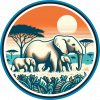
- 0 Resources
- 54 Discussions
- 6 Groups
- @mlamb2
- | she/her
PhD Student working on a computer vision model to detect colonial waterbirds along the Texas coast in aerial imagery
- 0 Resources
- 3 Discussions
- 3 Groups
- @ppalencia
- | Dr
I am Pablo Palencia, a postdoctoral researcher at Biodiversity Research Institute (IMIB). I am interested on develop and fine-tuning cutting-edge tools for wildlife management and conservation, wit a special mention of camera trapping ;)
- 0 Resources
- 0 Discussions
- 7 Groups
I'm a young conservationist from Ghana with over 7 years experience in Pangolin Conservation. My focus in Conservation is the human dimension of conservation. I am currently the manager for the Onepone Endangered Species Refuge.
- 0 Resources
- 0 Discussions
- 8 Groups
Natural Solutions
Computational ecologist - Engineer at Natural Solutions (France)



- 0 Resources
- 1 Discussions
- 13 Groups
Jacqueline Ramos explains how artificial intelligence can help to track and prevent chimpanzee trafficking across the globe.
6 February 2019
The Open Data Institute and the Office for AI are partnering to explore how data trusts could help to solve environmental, societal and industry challenges by enabling increased access to data while retaining trust....
31 January 2019
With the aim of advancing rewildling-related technology in the UK and introducing new talent and ideas into the field of rewildling, Ecosulis is thrilled to announce the launch of their first ever Rewilding Tech...
14 January 2019
A team of Brazilian biologists supported by the Conservation Leadership Programme (CLP) is unlocking the secrets of one of the world’s most fragile and threatened biodiversity hotspots thanks to the success of a...
22 November 2018
Ted Schmitt joined us for a lunchtime lecture in which he shared his experiences working across Africa the past five years with protected area managers, anti-trafficking organisations, and scientists to effectively...
22 November 2018
Machine learning is widely recognized as the solution to camera trap data processing, but a user-friendly and broadly-accessible system for putting this tech to use has not yet been developed. In this case study,...
1 October 2018
Article
In this case study, conservation ecologist Ayesha Tulloch takes us behind the scenes of her recent paper, which came out in Nature Ecology & Evolution earlier this month. In this paper, Ayesha and her team present a...
20 August 2018
The winners of our Human Wildlife Conflict Tech Challenge are offering regular updates throughout the year to chronicle their failures, successes and what they learn along the way as they develop their solutions. In...
27 July 2018
Looking to prototype or pilot a new conservation tech idea or approach? Conservation X Labs is running an idea competition for teams to create a first draft (i.e. prototype) of their conservation solution. 20 finalists...
11 June 2018
Conflict between humans and wildlife is increasing as human communities expand and wild habitats are destroyed, prompting need for new mitigation techniques. As a winner of the Human Wildlife Conflict Tech Challenge,...
19 April 2018
Hundreds of people joined our #Tech4Wildlife photo challenge this year, showcasing all the incredible ways tech is being used to support wildlife conservation. We've seen proximity loggers on Tasmanian Devils in...
3 March 2018
Following the UK Government’s landmark announcement of plans to introduce a complete ban on the domestic trade in ivory, it was fitting that a new machine learning product designed to tackle the supply end of this...
6 December 2017
August 2025
event
September 2025
event
event
event
event
October 2025
event
event
event
December 2025
event
March 2026
November 2023
event
event
17 Products
Recently updated products
| Description | Activity | Replies | Groups | Updated |
|---|---|---|---|---|
| We just wanted to share this news outside the core robotics community - hoping to connect more with conservationists, researchers,... |
|
AI for Conservation, Drones | 6 months ago | |
| Hi Lucie @luciegallegos ,Great to see ecoSecrets and happy to collaborate in any way I can! All EcoAssist's models are open-source, and the inference code too. With regards to... |
+10
|
Software Development, AI for Conservation, Camera Traps | 6 months ago | |
| Another question. Right now pretty much all camera traps trigger on either PIR sensors or small AI models. Small AI models would tend to have a limitation that they would... |
|
AI for Conservation, Camera Traps, Data management and processing tools, Open Source Solutions, Software Development | 6 months ago | |
| Hi Lucille,Thank you for your reply! We’d be really interested in learning more about your developments. We’ll contact you soon to arrange a discussion.Thank you.Best regards,... |
|
Acoustics, AI for Conservation, Sensors | 6 months 1 week ago | |
| Hi Lorenzo,I highly recommend the OpenSoundscapes package (developed by the Kitzes Lab at U Pittsburgh) - there are workflows to build your own CNNs there, the documentation is... |
|
Acoustics, AI for Conservation, Animal Movement, Open Source Solutions | 6 months 1 week ago | |
| This is probably seen a bit as "self-branding" which I hope is alright, otherwise please let me know! I have spent the past few months... |
|
AI for Conservation | 6 months 1 week ago | |
| We are putting together a special issue in the journal Ostrich: Journal of African Ornithology and are welcoming (review) papers on the use of AI in bird research. https://www.... |
|
AI for Conservation, Software Development, Citizen Science, Data management and processing tools | 6 months 1 week ago | |
| Hi Adrien,Submissions are open for the special addition. Please email David Ehlers Smith - david.ehlers.smith@birdlife.org.za for more details. We are also soliciting reviewers.... |
|
AI for Conservation | 6 months 1 week ago | |
| Hello everyone!During my master thesis in engineering (past autumn), I developed Machine Learning for anti-poaching. As such, I recorded a... |
|
Acoustics, AI for Conservation, Data management and processing tools | 6 months 1 week ago | |
| Hey everyone! We’re Deep Voice Foundation, a non-profit using AI to help conserve marine wildlife. We develop acoustic... |
|
Acoustics, AI for Conservation | 6 months 2 weeks ago | |
| Hello everyone. My name is Bilal. I recently graduated with a degree in bioengineering and hold a bachelor's degree in computer science,... |
|
AI for Conservation, Animal Movement, Human-Wildlife Coexistence, Marine Conservation | 7 months ago | |
| Hey, please find here a dataset about nocturnal bird calls in Europe |
+5
|
Acoustics, AI for Conservation, Software Development | 7 months ago |
Meetup: Machine Learning/AI on Earth Observation Data (23 July, London)
21 June 2019 12:00am
New open data site for fisheries
10 June 2019 7:17pm
Workshop & Challenges on Computer Vision for Wildlife Conservation (CVWC) at ICCV 2019
5 June 2019 6:51am
Technology companies, FCO, and conservation NGOs come together to scale technology solutions to end wildlife crime
4 June 2019 12:00am
AI for Earth Innovation Grant (extended)
4 June 2019 12:00am
CogX Festival of AI and Emerging Technology - free tickets for WILDLABS members
16 May 2019 12:12pm
3 June 2019 4:53pm
Are there any free tickets left for CogX?
I am on anthony.peake@agiledatum.com
3 June 2019 5:04pm
yep! Drop me an email at stephanie.odonnell@wildlabs.net and I'll get you a link.
Steph
How machine learning can help fight illegal wildlife trade on social media
31 May 2019 12:00am
GWP Webinar Recording: Using SMART at scale for effective wildlife protection
21 May 2019 12:00am
WILDLABS TECH HUB Showcase
17 May 2019 12:00am
Meet the WILDLABS TECH HUB Winners
13 May 2019 12:00am
Huge appetite for data trusts, according to new ODI research
15 April 2019 12:00am
Call for Papers: Data Mining and AI for Conservation Workshop at KDD 2019
15 April 2019 12:00am
Call for Papers: Thematic issue of Environment Conservation on ‘Conservation Artificial Intelligence’
26 March 2019 10:12am
WILDLABS Virtual Meetup: Low Cost, Open-Source Solutions
18 March 2019 12:00am
#Tech4Wildlife Photo Challenge: Our Favourites from 2019
3 March 2019 12:00am
Conserving the Sumatran and Javan Rhino
15 January 2019 7:39pm
23 January 2019 10:12pm
Hello Claire,
Engineer at Wild Me here. We would love to start a conversation about a Wildbook for rhinos.
Lets talk about citizen science and computer vision for identification possibilities. I'm curious about your current data set and the identification tools you are using as a starting point. I'm happy to talk here, or you can email our team at services@wildme.org.
24 February 2019 1:28am
Hi Claire,
At the BearID Project, we are working on a similar problem for brown bears. We are currently using machine learning methods developed for human facial recognition (like Google FaceNet). We got some ok initial results, but now we are running up against small data issues. The method for human faces were trained with millions of images of hundreds of thousandes on individuals. We have a few thousand images of about a hundred individuals. We plan to investigate other methods in the future.
It will be great to keep in touch to see what methods you will be using.
Ed
24 February 2019 1:38am
Hi Colin,
At the BearID Project, we are working on a similar problem for brown bears. We are currently using machine learning methods developed for human facial recognition (like Google FaceNet). We got some ok initial results, but now we are running up against small data issues. The method for human faces were trained with millions of images of hundreds of thousandes on individuals. We have a few thousand images of about a hundred individuals. We plan to investigate other methods in the future.
The last time I talked to WildMe, the identification algorithms were based on matching unique patterns. We didn't think this would be directly applicable for brown bears as they don't have a lot of clearly identifiable markings. Have you developed other identification algorithms?
Ed
Responsible AI for Conservation?
11 February 2019 6:22pm
21 February 2019 8:17am
Hi Jaishanker
Absolutely - the overlap between image-based and sound-based analyses is increasing, and consistent terminology will no doubt help us share info.
Are you using ML in SODA for automated identification of sounds? If so, how are you determining if a given classifier is performing well?
Thanks
Ollie
21 February 2019 11:08am
Hello Ollie,
SODA is a recently launched suite. It is in the development phase. We have with us call libraries with multiple (40+) calls for 10- 12 species of birds. A research scholar is on the job for classifying at the species level.
Our interest is equally on separating the different sonic components (as stated in https://www.wildlabs.net/community/thread/666). It is different from the link shared in my previous reply. This is where I see the confluence of objectives.
As a TEAM, I believe, we can address the individual objectives faster.
regards
jaishanker
21 February 2019 9:13pm
Hi Ollie,
Great article, thank you! I mostly work with responsible AI in other contexts, at Doteveryone.org.uk and the Trust & Technology Initiative at the University of Cambridge, so don't have much to offer here, although I am very interested in the topic. I appreciate your point that many of the consumer data issues highlighted in the 'popular' responsible AI discourse aren't relevant to conservation (some of us have been gathering 'responsible tech' / 'ethical tech' resources in a shared doc, and there's essentially nothing there for conservation specifically - https://docs.google.com/document/d/1SN6hYeKe3eRK6x9D0Sr7GpCA4nirpyo3u68xG1A6NDs/edit ). However there might be some links with humanitarian data practices, which are touched on by the Responsible Data folks at https://responsibledata.io and https://www.fabriders.net/data-literacy-consortium/ or in this recent article https://asecondmouse.wordpress.com/2019/02/20/instability-forecasting-models-seven-ethical-considerations/
Best,
Laura
Using Swiss AI and Drones to Count African Wildlife
18 February 2019 12:00am
ChimpFace: Facial recognition to combat wildlife trafficking
6 February 2019 12:00am
UK’s first data trusts to tackle illegal wildlife trade and food waste
31 January 2019 12:00am
The Ecosulis Rewilding Tech Challenge
14 January 2019 12:00am
WILDLABS Virtual Meetup: Big Data in Conservation
27 November 2018 12:00am
Canopy cameras shed new light on monkey business in Brazil
22 November 2018 12:00am
A technologist's journey to protect wildlife: The reality and potential of conservation technology (recorded talk)
22 November 2018 12:00am
WILDLABS Virtual Meetup: Networked Sensors for Security and HWC Prevention
12 November 2018 12:00am
Tusk Conservation Lecture 2018: Ted Schmitt
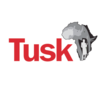 Tusk
Tusk
15 October 2018 12:00am
Biology Undergrad Attempts Automated Species Recognition Using MacBook Air and Google
1 October 2018 12:00am
How to share data on species to help conserve them… whilst avoiding them being exploited by poachers
20 August 2018 12:00am
Ocean Hack: San Francisco, 10-11th September, 2018
 One Ocean Collab
One Ocean Collab
20 August 2018 12:00am
Thermal Sensor Project Update: Testing with live animals at the San Diego Zoo
27 July 2018 12:00am
31 March 2023 2:15pm



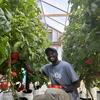



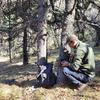




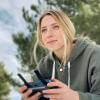







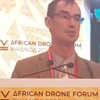
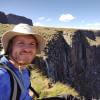


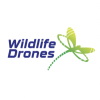
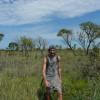







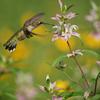
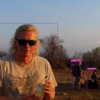














28 May 2019 12:02pm
UPDATE: We've had quite a few members emailing us for tickets, so I'm looking forward to meeting everyone in person! We've now been allocated some extra tickets, so if you are interested you're in luck, there is still a chance to come along.